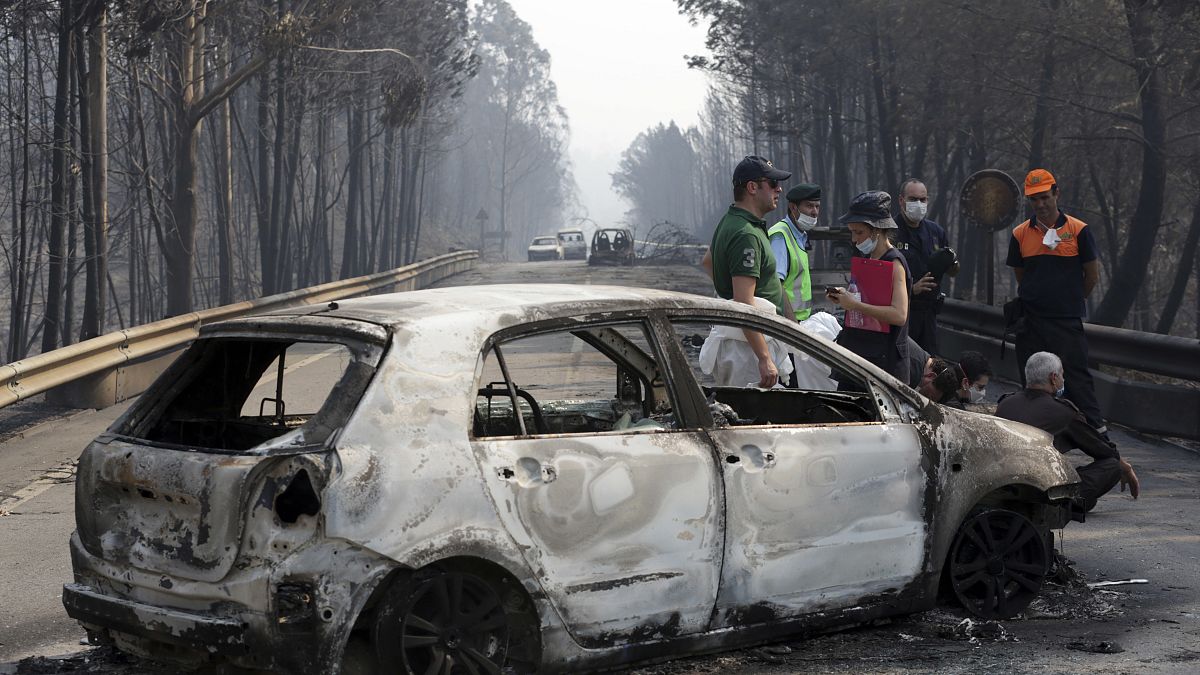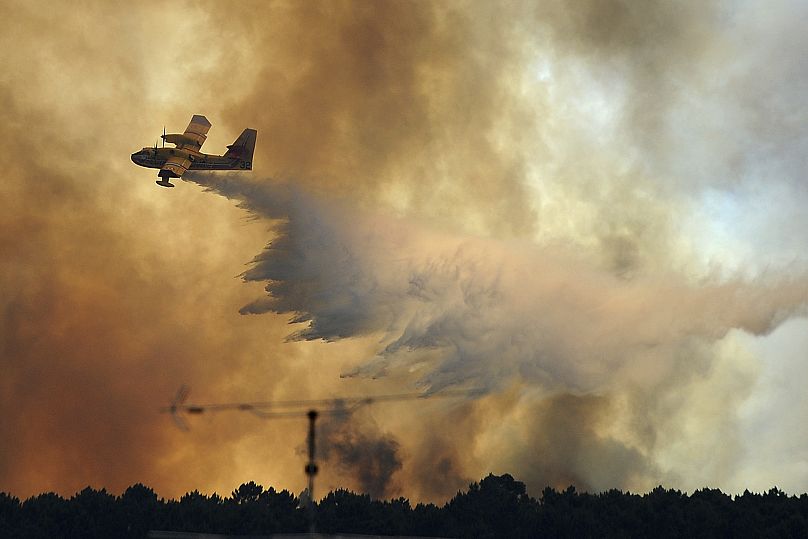At least 66 people died and 44 others were injured near the town of Pedrógão in June 2017.
Eleven people have been acquitted in a landmark trial into the devastating wildfires that hit central Portugal in 2017.
The suspects were all cleared of negligent homicide and “negligent offence to physical integrity” after months of proceedings.
Among the accused on trial were the municipal fire brigade commander, local elected officials, and employees of electricity distribution and road maintenance companies.
The forest fires in Pedrógão Grande in the central region of Leiria killed 66 people and injured 250 others in June 2017. An estimated 24,000 hectares of land were burned, and more than 500 houses were partially or totally destroyed over five days.
Dozens of the victims were killed while trapped in their cars on N236 -- the so-called "road of death" -- as the flames erupted.
Prosecutors had claimed that the Pedrógão Grande fire commander underestimated the risk of the blaze and delayed mobilising the resources that could have brought it under control.
Three executives of the Ascendi road concessionaire were also accused of failing to maintain the N236, while an energy distribution company had allegedly allowed their cables to come into contact with trees, igniting the fire after an electric shock.
But the court in Leiria concluded that none of the defendants were responsible for the deaths or injuries "by act or omission".
'Rare and unpredictable'
In June 2017, the whole of Portugal suffered its worst drought since 1931, the court said in its verdict on Tuesday.
While there had been failures in preventing and fighting the forest fires, presiding judge Maria Clara Santos stated that the tragedy had been caused by a natural phenomenon of "unique and totally unforeseeable" violence.
The blaze was caused by "an extreme, rare and unpredictable pyrometeorological phenomenon, which had never before been observed in Portugal or in the whole of the European continent," she said.
An "explosion of fire" was created when the smoke and heat emanating from the fire fell suddenly, Santos added.
The court acknowledged that the companies responsible for maintaining the power grid and roads had not fully complied with rules requiring them to create vegetation-free protective strips. But the judge was not convinced that these steps would have effectively slowed the progress of the flames.
The Portuguese Fire Brigade League had earlier stated that the Pedrógão Grande commander was "innocent and that he could not have done better." On Tuesday, dozens of uniformed firefighters gathered in front of the court, forming a guard of honour to express their "silent" solidarity.
Prime Minister António Costa called the disaster "the greatest tragedy of its kind we have seen in recent years” and has acknowledged the state's responsibility.
In October 2017 -- just months after the devastation in Pedrógão Grande -- more wildfires spread across Portugal, killing 45 people. The families of the victims of the June and October fires received a total of €31 million in compensation.
Five years on, residents in the area still fear another disaster. The roads and hills in the Leiria region are still surrounded by dry vegetation and highly flammable eucalyptus plants, which are used for Portugal’s paper industry.
"We look around us and see that nothing has really changed," said Dina Duarte, president of the Pedrógão Grande victims' association.
"We don't want more people to die because of a fire. We want to warn that what happened in 2017 will happen again if there is no prevention.”
At an anniversary marking five years since the tragedy, Portuguese President Marcelo Rebelo de Sousa said the country is now “better able” to deal with fires.
This year, more than 86,000 hectares of land in Portugal have been destroyed by fire, the most since 2017.
Scientists say that global warming is to blame for increasingly hot and dry conditions, making wildfires more frequent and dangerous.

